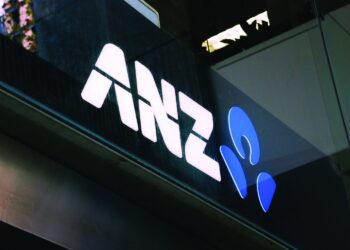A June interest rate lift looks more likely than not, with the Reserve Bank of Australia (RBA) itself hinting rates could head north sooner than anticipated as a result of strengthening inflation and wages growth.
In the minutes of the RBA’s April board, the bank acknowledged a significant pick-up in inflation, noting that “a further increase was expected”, with measures of underlying inflation in the March quarter expected to be above 3 per cent.
Members of the board did, however, insist that inflation in Australia “was still lower than in many other countries”, but noted that higher prices for petrol and other commodities could alter the scenario in coming quarters.
“An updated set of bank forecasts will be published in May,” the RBA said.
“The speed of the resolution of the various global supply-side issues, developments in global energy markets and the evolution of overall labour costs were key sources of uncertainty about the inflation outlook.”
Economists are expecting March quarter inflation figures to blow the RBA’s February Quarterly Statement on Monetary Policy forecasts out of the water.
Just recently, NAB economists forecasted a core inflation at a whopping 1.2 per cent for the March quarter and 3.4 per cent over the year. This means that, if realised, the six-month annualised rate of core inflation would be 4.4 per cent even before the full extent of the price pressures unleashed by the Russia-Ukraine conflict have been reflected.
Last Wednesday, New Zealand’s Reserve Bank (RBNZ) raised the official cash rate to 1.5 per cent in a bid to contain its own inflationary pressures.
The committee agreed it is appropriate to act quickly, confirming its policy path of “least regret” is to increase the OCR by more now, rather than later, to head off rising inflation expectations and minimise any unnecessary volatility in output, interest rates, and the exchange rate in the future.
In a similar vein, the Bank of Canada (BOC), lifted its key interest rate by the highest amount in more than 20 years and warned that more hikes are coming amid towering inflation forecasts.
But the RBA is remaining vague. Despite acknowledging that the above developments “have brought forward the likely timing of the first increase in interest rates”, the board also said it needed more evidence before deciding to pull the trigger.
“Over coming months, important additional evidence will be available on both inflation and the evolution of labour costs.
“Consistent with its announced framework, the board agreed that it would be appropriate to assess this evidence and other incoming information as it sets policy to support full employment in Australia and inflation outcomes consistent with the target.”
Wages have weighed heavily on the RBA’s mind but in April it finally conceded that “wages growth has picked up”, albeit at “relatively low levels”.
“Given the tightness of the labour market, a further strengthening of aggregate wages growth and broader measures of labour costs was expected,” the board said.
“The pick-up was still expected to be only gradual, although there was uncertainty about the behaviour of wages at historically low levels of the unemployment rate”.
Most of the economic commentariat have pencilled in June as the most likely point for a policy rate lift-off giving the RBA board the benefit of viewing the March quarter Wage Price Index released on 18th May.







